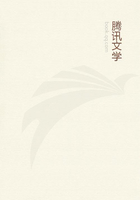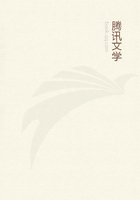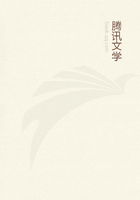Thus we see that warriors who have taken the life of a foe in battle are temporarily cut off from free intercourse with their fellows, and especially with their wives, and must undergo certain rites of purification before they are readmitted to society. Now if the purpose of their seclusion and of the expiatory rites which they have to perform is, as we have been led to believe, no other than to shake off, frighten, or appease the angry spirit of the slain man, we may safely conjecture that the similar purification of homicides and murderers, who have imbrued their hands in the blood of a fellow-tribesman, had at first the same significance, and that the idea of a moral or spiritual regeneration symbolised by the washing, the fasting, and so on, was merely a later interpretation put upon the old custom by men who had outgrown the primitive modes of thought in which the custom originated. The conjecture will be confirmed if we can show that savages have actually imposed certain restrictions on the murderer of a fellow-tribesman from a definite fear that he is haunted by the ghost of his victim. This we can do with regard to the Omahas of North America. Among these Indians the kinsmen of a murdered man had the right to put the murderer to death, but sometimes they waived their right in consideration of presents which they consented to accept. When the life of the murderer was spared, he had to observe certain stringent rules for a period which varied from two to four years. He must walk barefoot, and he might eat no warm food, nor raise his voice, nor look around. He was compelled to pull his robe about him and to have it tied at the neck even in hot weather; he might not let it hang loose or fly open. He might not move his hands about, but had to keep them close to his body. He might not comb his hair, and it might not be blown about by the wind. When the tribe went out hunting, he was obliged to pitch his tent about a quarter of mile from the rest of the people lest the ghost of his victim should raise a high wind, which might cause damage. Only one of his kindred was allowed to remain with him at his tent. No one wished to eat with him, for they said, If we eat with him whom Wakanda hates, Wakanda will hate us. Sometimes he wandered at night crying and lamenting his offence. At the end of his long isolation the kinsmen of the murdered man heard his crying and said, It is enough. Begone, and walk among the crowd. Put on moccasins and wear a good robe. Here the reason alleged for keeping the murderer at a considerable distance from the hunters gives the clue to all the other restrictions laid on him: he was haunted and therefore dangerous. The ancient Greeks believed that the soul of a man who had just been killed was wroth with his slayer and troubled him; wherefore it was needful even for the involuntary homicide to depart from his country for a year until the anger of the dead man had cooled down; nor might the slayer return until sacrifice had been offered and ceremonies of purification performed. If his victim chanced to be a foreigner, the homicide had to shun the native country of the dead man as well as his own. The legend of the matricide Orestes, how he roamed from place to place pursued by the Furies of his murdered mother, and none would sit at meat with him, or take him in, till he had been purified, reflects faithfully the real Greek dread of such as were still haunted by an angry ghost.
6. Hunters and Fishers tabooed
IN SAVAGE society the hunter and the fisherman have often to observe rules of abstinence and to submit to ceremonies of purification of the same sort as those which are obligatory on the warrior and the manslayer; and though we cannot in all cases perceive the exact purpose which these rules and ceremonies are supposed to serve, we may with some probability assume that, just as the dread of the spirits of his enemies is the main motive for the seclusion and purification of the warrior who hopes to take or has already taken their lives, so the huntsman or fisherman who complies with similar customs is principally actuated by a fear of the spirits of the beasts, birds, or fish which he has killed or intends to kill. For the savage commonly conceives animals to be endowed with souls and intelligences like his own, and hence he naturally treats them with similar respect. Just as he attempts to appease the ghosts of the men he has slain, so he essays to propitiate the spirits of the animals he has killed. These ceremonies of propitiation will be described later on in this work; here we have to deal, first, with the taboos observed by the hunter and the fisherman before or during the hunting and fishing seasons, and, second, with the ceremonies of purification which have to be practised by these men on returning with their booty from a successful chase.
While the savage respects, more or less, the souls of all animals, he treats with particular deference the spirits of such as are either especially useful to him or formidable on account of their size, strength, or ferocity.
Accordingly the hunting and killing of these valuable or dangerous beasts are subject to more elaborate rules and ceremonies than the slaughter of comparatively useless and insignificant creatures. Thus the Indians of Nootka Sound prepared themselves for catching whales by observing a fast for a week, during which they ate very little, bathed in the water several times a day, sang, and rubbed their bodies, limbs, and faces with shells and bushes till they looked as if they had been severely torn with briars. They were likewise required to abstain from any commerce with their women for the like period, this last condition being considered indispensable to their success. A chief who failed to catch a whale has been known to attribute his failure to a breach of chastity on the part of his men. It should be remarked that the conduct thus prescribed as a preparation for whaling is precisely that which in the same tribe of Indians was required of men about to go on the war-path.















